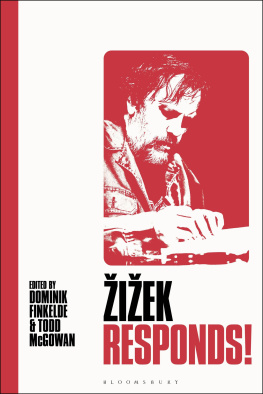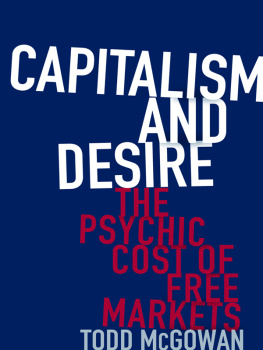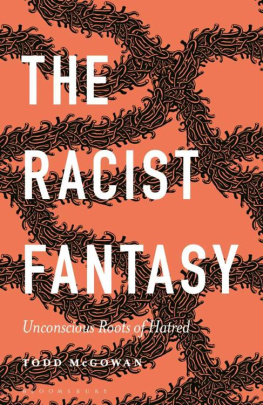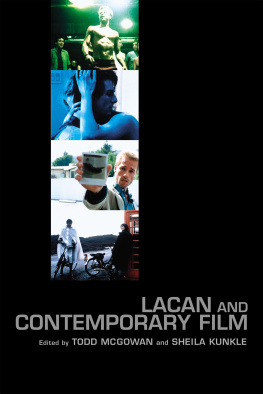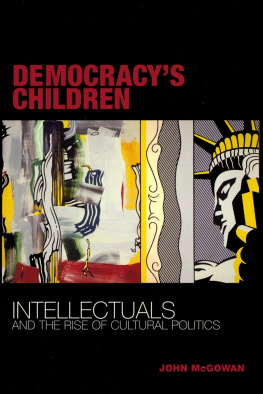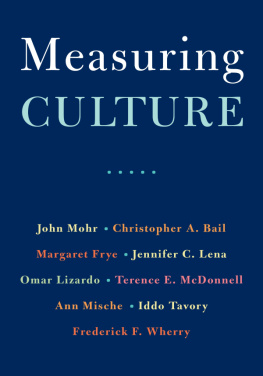Todd McGowan - Universality and Identity Politics
Here you can read online Todd McGowan - Universality and Identity Politics full text of the book (entire story) in english for free. Download pdf and epub, get meaning, cover and reviews about this ebook. publisher: Columbia University Press, genre: Politics. Description of the work, (preface) as well as reviews are available. Best literature library LitArk.com created for fans of good reading and offers a wide selection of genres:
Romance novel
Science fiction
Adventure
Detective
Science
History
Home and family
Prose
Art
Politics
Computer
Non-fiction
Religion
Business
Children
Humor
Choose a favorite category and find really read worthwhile books. Enjoy immersion in the world of imagination, feel the emotions of the characters or learn something new for yourself, make an fascinating discovery.

- Book:Universality and Identity Politics
- Author:
- Publisher:Columbia University Press
- Genre:
- Rating:4 / 5
- Favourites:Add to favourites
- Your mark:
- 80
- 1
- 2
- 3
- 4
- 5
Universality and Identity Politics: summary, description and annotation
We offer to read an annotation, description, summary or preface (depends on what the author of the book "Universality and Identity Politics" wrote himself). If you haven't found the necessary information about the book — write in the comments, we will try to find it.
Universality and Identity Politics — read online for free the complete book (whole text) full work
Below is the text of the book, divided by pages. System saving the place of the last page read, allows you to conveniently read the book "Universality and Identity Politics" online for free, without having to search again every time where you left off. Put a bookmark, and you can go to the page where you finished reading at any time.
Font size:
Interval:
Bookmark:
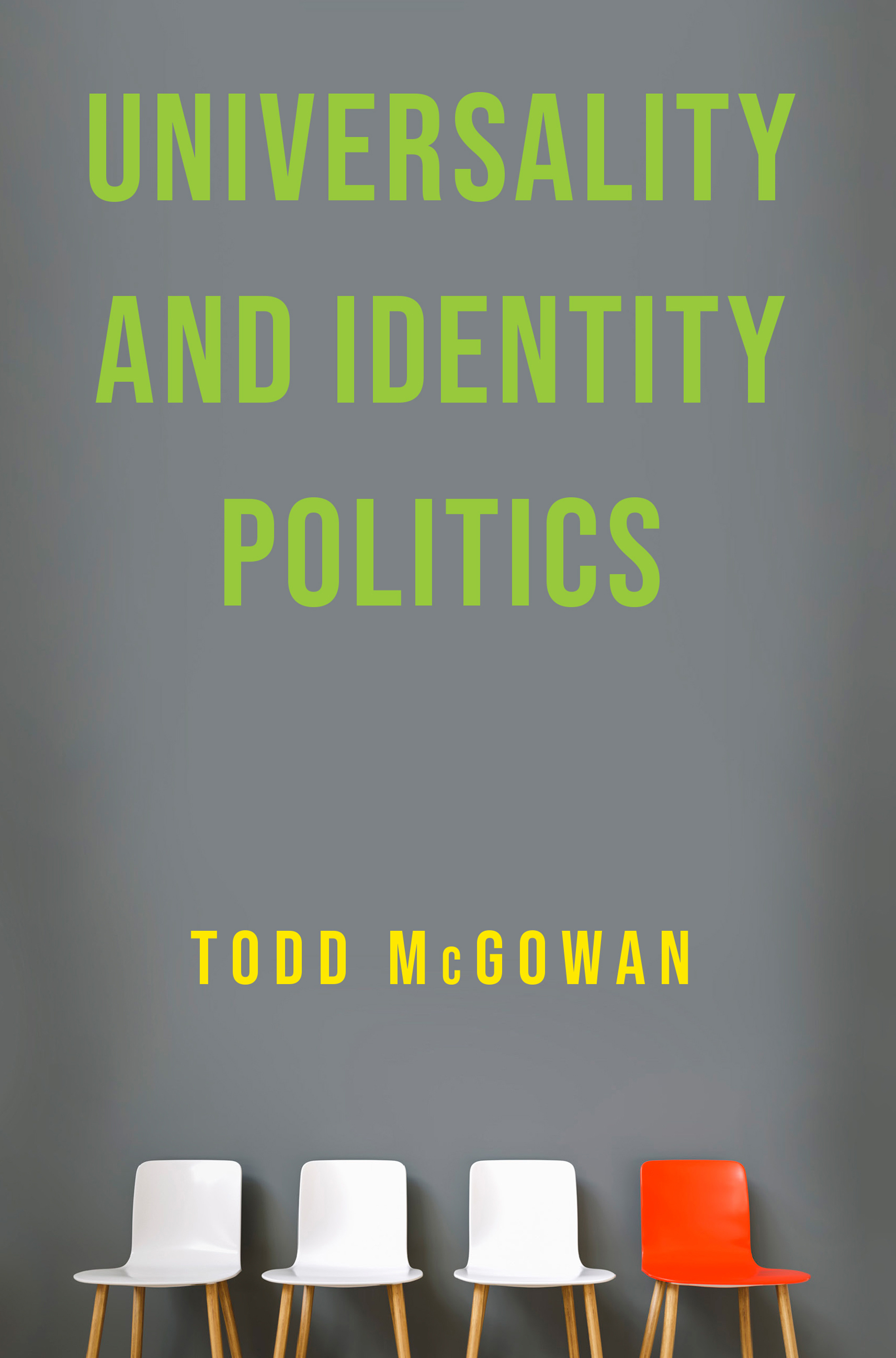
UNIVERSALITY AND IDENTITY POLITICS
UNIVERSALITY AND IDENTITY POLITICS
TODD MCGOWAN
Columbia University Press New York

Columbia University Press
Publishers Since 1893
New York Chichester, West Sussex
cup.columbia.edu
Copyright 2020 Columbia University Press
All rights reserved
E-ISBN 978-0-231-55230-1
Library of Congress Cataloging-in-Publication Data
Names: McGowan, Todd, author.
Title: Universality and identity politics / Todd McGowan.
Description: New York : Columbia University Press, 2020. | Includes bibliographical references and index.
Identifiers: LCCN 2019052933 (print) | LCCN 2019052934 (ebook) | ISBN 9780231197700 (cloth)
Subjects: LCSH: Political participationSocial aspects. | Identity politics. | CapitalismPolitical aspects. | Right and left (Political science)
Classification: LCC JF799 .M345 2020 (print) | LCC JF799 (ebook) | DDC 320.01dc23
LC record available at https://lccn.loc.gov/2019052933
LC ebook record available at https://lccn.loc.gov/2019052934
A Columbia University Press E-book.
CUP would be pleased to hear about your reading experience with this e-book at .
Cover design: Mary Ann Smith
Cover image: Shutterstock
For Mari Ruti, the closest I had to a twin

contain work revised from earlier publications. I am grateful to Problemi International for permission to reprint some of The Absent Universal: From the Master Signifier to the Missing Signifier, Problemi International 2, no. 2 (2018): 195214, and to Continental Thought and Theory for permission to reprint part of The Particularity of the Capitalist Universal, Continental Thought and Theory 1, no. 4 (2017): 473494.
Thanks to Wendy Lochner at Columbia University Press. She is a guiding light for theory in a practical world.
I am indebted to Dashiell and Theo Neroni, my twin sons, who generously gave up any idea of solidarity with each other solely in order to instruct me in the hostility that arises from trying to assert ones identity.
Thanks to my mother, Sandi McGowan, who abandoned her identity as a potential nun to heroically devote her life to the universalist project of education. I would thank my father as well, but he is not just structurally absent.
Thanks to my brother, Wyk McGowan, who saw sooner than I the hollowness of capitalisms isolated particularism. He is a political model for me.
Emily Bernard and Andrew Barnaby make the English Department at the University of Vermont more universal than it would like to be.
I appreciate the heroic efforts of Dean William Falls at the University of Vermont, who continues to give me time in exchange for money. I fear only that Bill is too kind to remain dean much longer.
The Theory Reading GroupJoseph Acquisto, Sarah Alexander, Bea Bookchin, Hilary Neroni, John Waldron, and Hyon Joo Yooprovided comfort by always expressing the appropriate level of invective whenever it accidentally chose a particularist text to study.
Thanks to Clint Burnham, Danny Cho, Joan Copjec, Veronica Davis, Matthew Flisfeder, Adrian Johnston, Donald Kunze, Juan Pablo Lucchelli, Hugh Manon, Jonathan Mulrooney, Ken Reinhard, Frances Restuccia, Molly Rothenberg, Russell Sibriglia, Louis-Paul Willis, Jean Wyatt, Cindy Zeiher, and Slavoj iek, for betraying their identity every day.
Many discussions with Jennifer Friedlander and Henry Krips have helped to subtract any investment I have in my own identity and reassure me that there is life only through what we lack.
Thanks to Ryan Engley, who discussed the dialectic of the universal and the particular with me through many podcasts. He has never stopped me from flogging this dead horse, despite his better judgment and the pleas of those who listen.
Thanks to Sheila Kunkle, who demonstrates, in the face of my stubborn resistance, that it is possible to have universal solidarity with other species.
Anna Kornbluhs strict formalism has often saved me from temptations offered by Giorgio Agamben. She is the only leftist I know as unapologetic as I am in her insistence on the emancipatory function of the state.
Thank God that Quentin Martin believed enough in our solidarity to tell me how much he hated the first draft of this book. I hope that now it has become a bit less terrible thanks to his incisive reading, though I also hope that he doesnt reread it, since I couldnt change enough.
I am indebted to Richard Boothby for his thorough reading of the manuscript at an early stage. Rick is my definition of the universal intellectual. If Foucault had met him, Im positive that he would have had to revise his negative opinion on this figure.
Thanks to Fabio Vighi for his charitable reading of the manuscript and his enduring friendship. More than anyone else, he taught me Marxs particular misstep.
Mari Ruti generously devoted her time not just to a thorough reading of the book but to rethinking along with me several of its key points. She sees what is not there as if it is and knows how to sustain absences. Every deviation that I made from her suggestions gives something new to lament about how things turned out.
Walter Davis has graciously read everything that I have written. His suggestions for this book stripped away the sentimentality that I wanted to cling to. I aspired to his level of ethical fervor but pulled back.
At the last minute, Paul Eisenstein, putting everything else aside, read the entire book and provided valuable feedback. When I asked him to do this, I prefaced my request by wondering aloud, How big a favor would be too big? He responded, I dont understand the sense of your question, letting me know that we have been in absolute solidarity from the beginning, when all we were doing was golfing and speculating about universality.
Hilary Neroni did almost everything.
Finally, thanks to Paul Eisenstein, Walter Davis, and Hilary Neroni. Their singularity comes from their unrelenting commitment to the universal.
The promise of modernity is the promise of universal emancipation. When the revolutionaries in France name libert, galit, and fraternit as their watchwords, they put into precise terms the promise that appears with the dawning of the modern world. With the break from tradition and traditional authority, modernity puts an end to any theoretical justification for depriving someone of freedom or establishing an unequal society. Universality means that everyone across all societies and within all societies shares in these values, that everyone is free, equal, and in solidarity, even if ruling social arrangements obscure this. Tradition provides an excuse for unfreedom and inequality, but modernity abolishes all such excuses. Any unfreedom or inequality becomes unjustifiable in the modern world.
But a quick look around the modern world indicates that rampant unfreedom and inequality are everywhere. From its origins, modernity has not kept the promise articulated in the French Revolution. And now, contemporary society stands as a monument to this failure. Young children labor under lethal conditions in the Congo mining minerals for iPhones. Workers in Vietnam assemble electronic equipment that costs thousands of dollars in exchange for starvation wages. Police gun down black individuals in the United States solely because they are black. Networks of human traffickers trade thousands of women around the planet as sex slaves. Gay teenagers commit suicide at a rate four times that of straight teenagers. Right-wing populist leaders harden national divisions to protect the power of wealthy interests. The fact that these startling inequalities persist centuries after the dawn of modernity indicates that they are not just anomalies of the modern world but constitutive of it. In modernity, we accept inequality even though it has lost its political justification.
Font size:
Interval:
Bookmark:
Similar books «Universality and Identity Politics»
Look at similar books to Universality and Identity Politics. We have selected literature similar in name and meaning in the hope of providing readers with more options to find new, interesting, not yet read works.
Discussion, reviews of the book Universality and Identity Politics and just readers' own opinions. Leave your comments, write what you think about the work, its meaning or the main characters. Specify what exactly you liked and what you didn't like, and why you think so.

